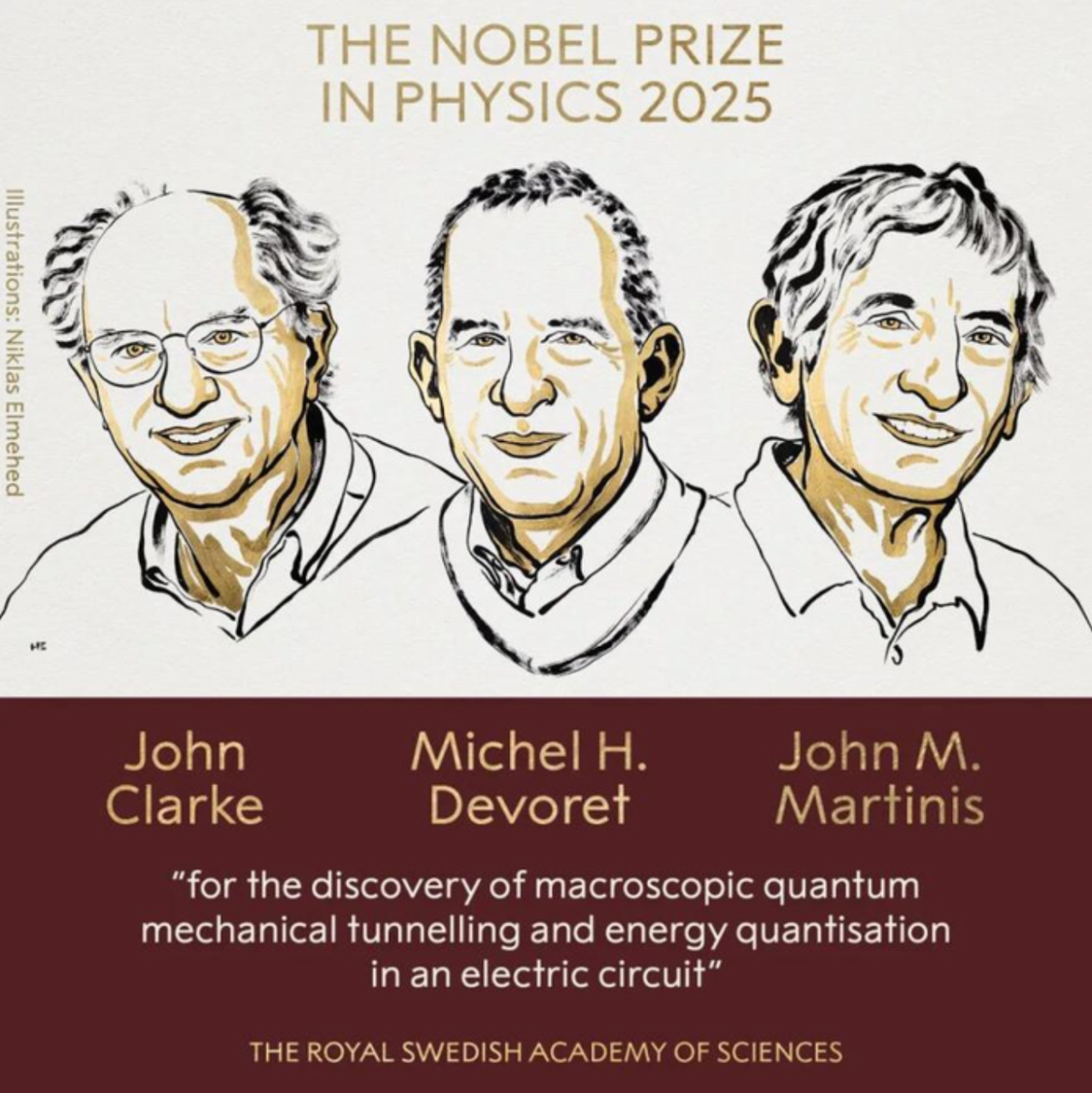The Nobel Prize in Physics honors quantum engineering.
Release time:
2025-10-09
According to CCTV News, on October 7 local time, the Royal Swedish Academy of Sciences decided to award the 2025 Nobel Prize in Physics to scientists John Clarke, Michel H. Devoret, and John M. Martinis in recognition of their "discovery of the macroscopic quantum mechanical tunneling effect and energy quantization in electrical circuits". The laureates will share the prize money of 11 million Swedish kronor (approximately equivalent to 8.36 million yuan).

John Clarke was born in Cambridge, England, and obtained his Doctor of Philosophy degree from the University of Cambridge.
John M. Martinis was born in the United States and received his Doctor of Philosophy degree from the University of California, Berkeley.
Michel H. Devoret was born in Paris, France, and obtained his Doctor of Philosophy degree from the University of Paris-Sud (now Paris-Saclay University).
The Royal Swedish Academy of Sciences wrote in a press release that the three scientists demonstrated the manifestation of quantum mechanical tunneling and quantum energy levels in the system in electrical circuits, and this research laid a theoretical foundation for the research and development of quantum computers.
In 1984 and 1985, they conducted a series of experiments on electronic circuits constructed with superconductors, controlling and exploring the phenomena that occurred when current passed through by improving and measuring various characteristics of the circuits. The charged particles moving in superconductors together formed a system. Their experiments showed that quantum mechanical properties could be materialized at the macroscopic level.
Nobel Prize in Physics laureates in the past five years:
The 2024 Nobel Prize in Physics was awarded to American scientist John Hopfield and Canadian scientist of British origin Geoffrey Hinton in recognition of their fundamental discoveries and inventions in machine learning using artificial neural networks.
The 2023 Nobel Prize in Physics was awarded to Pierre Agostini, Ferenc Krausz, and Anne L'Huillier in recognition of their application of experimental methods for generating attosecond light pulses to study the electron dynamics of matter.
The 2022 Nobel Prize in Physics was awarded to French scientist Alain Aspect, American scientist John Clauser, and Austrian scientist Anton Zeilinger in recognition of their contributions to experiments with entangled photons, the demonstration of violations of Bell's inequality, and the pioneering of quantum information science.
The 2021 Nobel Prize in Physics was awarded to Japanese-American scientist Syukuro Manabe and German scientist Klaus Hasselmann in recognition of their contributions to "the physical modeling of the Earth's climate, quantification of variability, and reliable prediction of global warming", and the other half was awarded to Italian scientist Giorgio Parisi in recognition of his discovery of the mutual influence between disorder and fluctuations in physical systems from the atomic to the planetary scale.
The 2020 Nobel Prize in Physics was awarded half to Roger Penrose, and the other half jointly to Reinhard Genzel and Andrea Ghez. Roger Penrose won the award for his discovery that the formation of black holes is a powerful prediction of the general theory of relativity, while Reinhard Genzel and Andrea Ghez won the award for their discovery of a supermassive compact object at the center of the Milky Way.
Recommended
Optical chips have been ignited
2025-11-18
The era of microchips is coming to an end
2025-11-04
Japan's Semiconductors: The Lost 30 Years
2025-10-24






